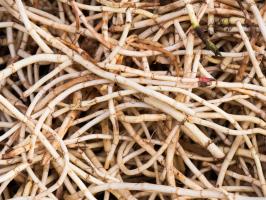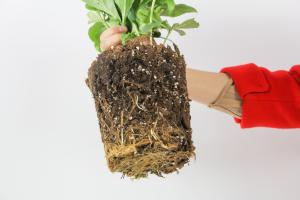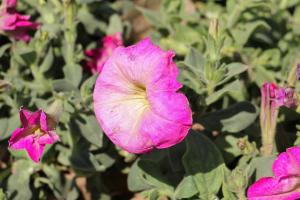When to Feed Pot Plants
Pot plants can add fresh vitality and beauty to indoor and outdoor spaces, but they also require proper care and feeding to thrive. One of the most important factors in ensuring the health and longevity of your pot plants is providing them with the correct amount and type of nutrients at the right times throughout the growing season. Here are some key considerations when it comes to feeding pot plants:
Understanding Nutrient Needs
Before you start feeding your pot plants, it's important to understand the kinds of nutrients they need and how often they require them. The three main nutrients that plants need for healthy growth are nitrogen, phosphorus, and potassium. Nitrogen is essential for leafy growth, phosphorus promotes root development and flowering, and potassium helps plants resist disease and stress. In addition to these macronutrients, plants also require micronutrients such as iron, zinc, and calcium in smaller quantities.
Timing is Key
When it comes to feeding pot plants, timing is everything. Generally, it's best to fertilize your plants during the active growing season, which is usually from early spring to late summer. This is when your plants are using the most energy to produce new leaves, stems, and flowers, so they need plenty of nutrients to support their growth. However, it's important not to over-fertilize your plants or feed them at the wrong times, as this can cause damage or even kill them.
Consider the Type of Plant
Each type of pot plant has its own unique needs when it comes to feeding. For example, succulents and cacti require much less fertilizer than other types of plants, as they are adapted to survive in arid environments with limited nutrients. On the other hand, flowering plants such as roses and lilies tend to require more phosphorus than other nutrients to promote healthy blooms. Make sure to research your particular type of pot plant to determine its specific nutrient needs.
Choosing the Right Fertilizer
When selecting a fertilizer for your pot plants, there are several options to choose from. Organic fertilizers are made from natural materials such as compost, manure, and bone meal, and tend to release nutrients more slowly over time. Synthetic fertilizers, on the other hand, are made from chemical compounds and tend to be more concentrated and fast-acting. It's important to read the labels carefully and choose a fertilizer that is appropriate for your particular plant and soil conditions.
Final Thoughts
Feeding your pot plants can be a rewarding and fulfilling experience, but it's important to approach it with care and caution. By understanding your plant's nutrient needs, timing your fertilization correctly, and choosing the right fertilizer, you can help ensure that your pot plants grow strong and healthy. With a little bit of research and attention to detail, your pot plants can provide you with years of beauty and enjoyment.

 how many times do yo...
how many times do yo... how many planted tre...
how many planted tre... how many pine trees ...
how many pine trees ... how many pecan trees...
how many pecan trees... how many plants comp...
how many plants comp... how many plants can ...
how many plants can ... how many plants and ...
how many plants and ... how many pepper plan...
how many pepper plan...

































